
Enhancing Student Outcomes and Teacher Practice through Math Mastery: A Comprehensive Study Tour and Curriculum Framework Development.
As a primary school teacher with ten years of classroom experience, I’ve had the opportunity to teach across year levels from Prep to Year 3. Throughout my teaching journey, I’ve developed a strong passion for ensuring that every student feels a sense of success in the classroom and equally, that every teacher feels confident and equipped to deliver high-quality lessons. Over time, I’ve become increasingly interested in how we can bring greater consistency and clarity to the way we teach mathematics across the early years.
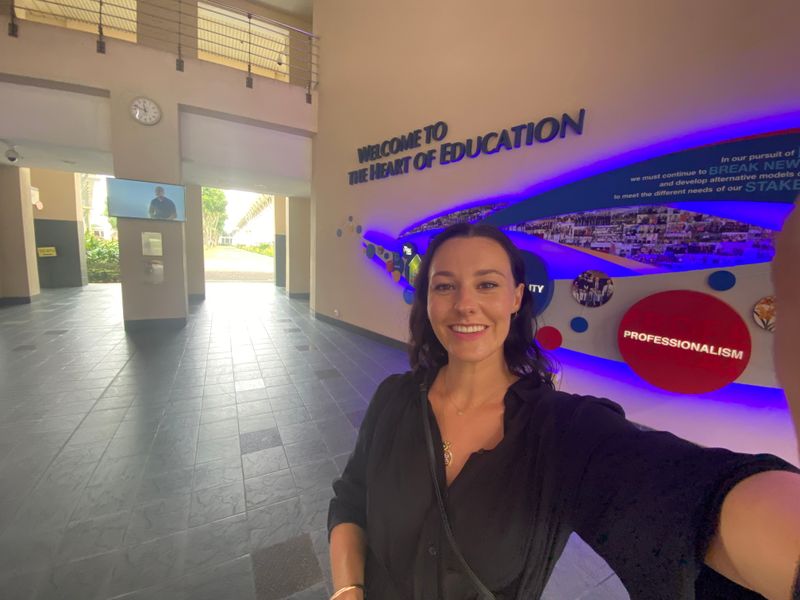
In 2024, I was fortunate to be awarded the inaugural Toowoomba Grammar School Teaching Fellowship to explore this interest more. My proposal, titled Enhancing Student Outcomes and Teacher Practice through Math Mastery: A Comprehensive Study Tour and Curriculum Framework Development, focused on investigating how the Math Mastery approach could strengthen both student understanding and teacher instruction in mathematics. This opportunity took me to Singapore to investigate the Math Mastery approach - an internationally recognised model of mathematics instruction that supports every student to achieve deep understanding through carefully sequenced, explicit teaching.
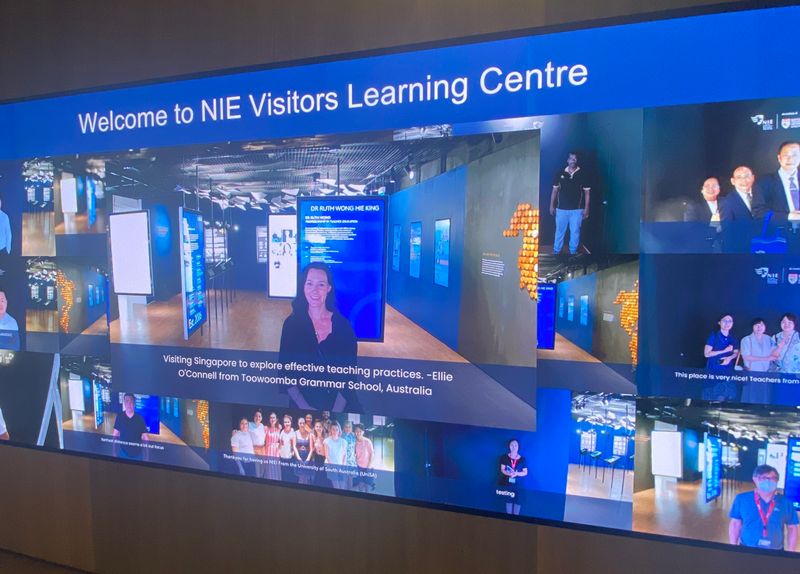
Why Mathematics? Why Now?
Across Australia, there is growing national concern about the long-term decline in mathematics achievement. Reports such as the Gonski Review (2018) highlight that many students are not mastering the basic skills needed for future learning, and that teachers need more explicit, structured tools to support all learners. In the early years of schooling—where concepts are first introduced, and mathematical mindsets are formed—it’s crucial that instruction is clear, consistent and effective. Gaps in understanding at this stage can have long-lasting effects on a child’s confidence and progress. The fellowship was an opportunity to examine international best practices and bring back evidence-informed strategies that could enhance both student outcomes and teacher practice in our own School.
Learning from Singapore: Schools and Insights
During my study tour in Singapore, I visited two leading international schools: Dulwich College and Invictus International School. Both schools use mastery-based approaches to mathematics, with structured, well-sequenced programs designed to develop deep conceptual understanding. At Dulwich College I observed math lessons from Years 1 to 5 that emphasised both mastery and practical application. The classrooms fostered a calm, focused learning environment in which teachers guided students through new concepts using clear, structured instruction, ensuring mastery through modelling, guided practice and checking for understanding before progressing. I also engaged in discussions with the school’s mathematics leadership team, who shared their planning processes and how they support teachers to differentiate within whole-class teaching.
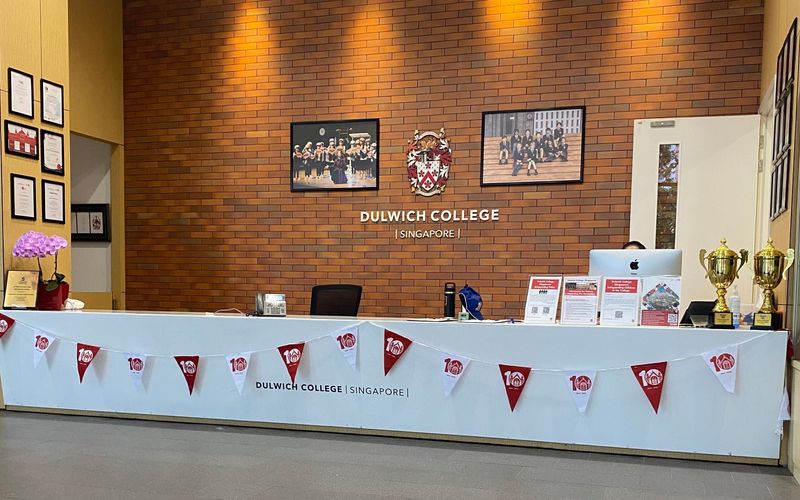
Invictus International School offered a contrasting yet equally valuable perspective. With a diverse cohort of learners and a flexible curriculum model, their team demonstrated how mastery principles can be embedded in a range of contexts. I also had the opportunity to meet with local educational consultants and curriculum developers, who offered insights into how Singapore’s national curriculum supports cumulative learning, daily review and concept mastery from the early years onwards.
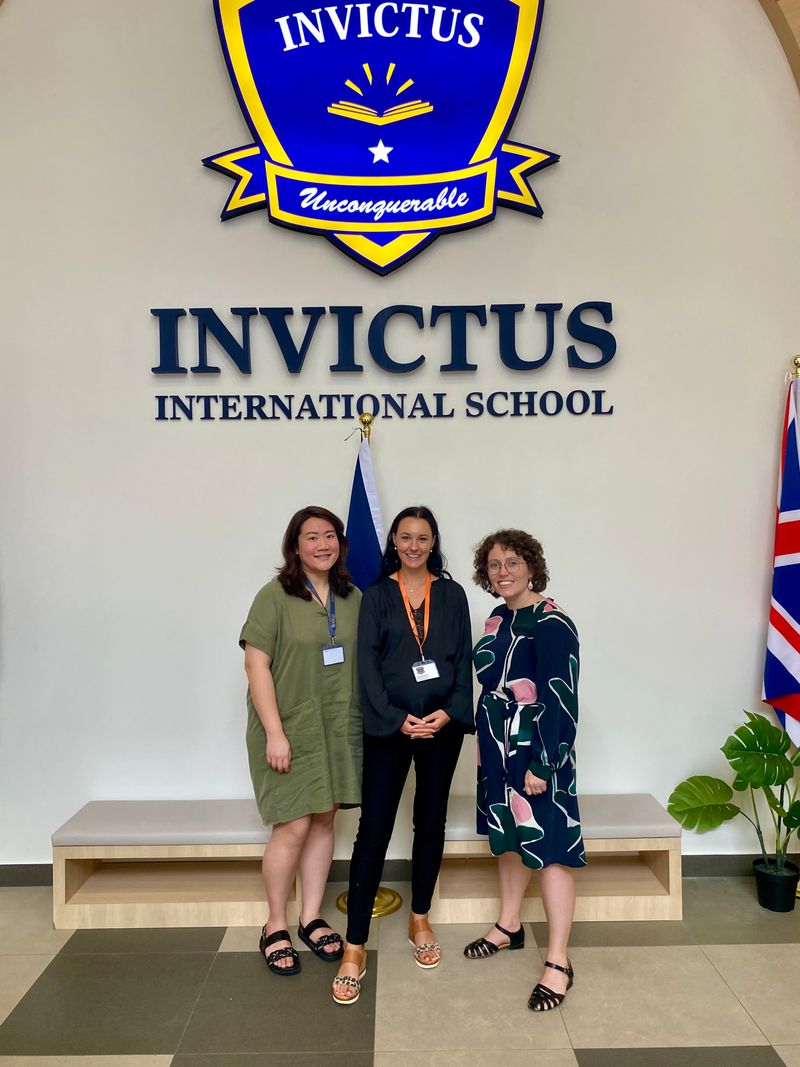
Key Findings: What Makes Mastery Work?
My observations confirmed the power of structured, explicit teaching in building strong foundations in mathematics. These were the key elements that stood out across all settings:
- Clear Learning Objectives
Teachers clearly define what students need to know and be able to do at the end of each unit or lesson.
- Whole-Class Instruction with Embedded Differentiation
Rather than streaming students by ability, mastery classrooms taught concepts to the whole class while using questioning, scaffolding and targeted support to meet individual needs.
- Corrective Instruction
Students who don't achieve mastery receive additional instruction or support to address knowledge gaps.
- Cumulative, Carefully Sequenced Learning
Each lesson built directly on the last, with time allocated for review and consolidation. This ensured that no student was left behind and that concepts were truly understood before new material was introduced.
- Mathematical Language and Reasoning
Teachers modelled precise vocabulary and encouraged students to explain their thinking. This supported deeper reasoning and helped students internalise core concepts.
- Learning Routines
Clear instructional routines and behaviours are established in every classroom, reinforcing expectations and supporting learning.
- Lesson Resources
Hands-on materials and visual examples are carefully chosen to help students connect with new concepts in ways that suit their learning needs.
- Fluency
Essential number facts are practised until automatic, helping students reduce cognitive load, enhancing students’ ability to focus on new and more complex ideas.
- Calm, Confident Learners
Most powerfully, students appeared confident, focused and proud of their mathematical thinking. The clear structure and shared learning journey contributed to a positive and inclusive classroom culture.
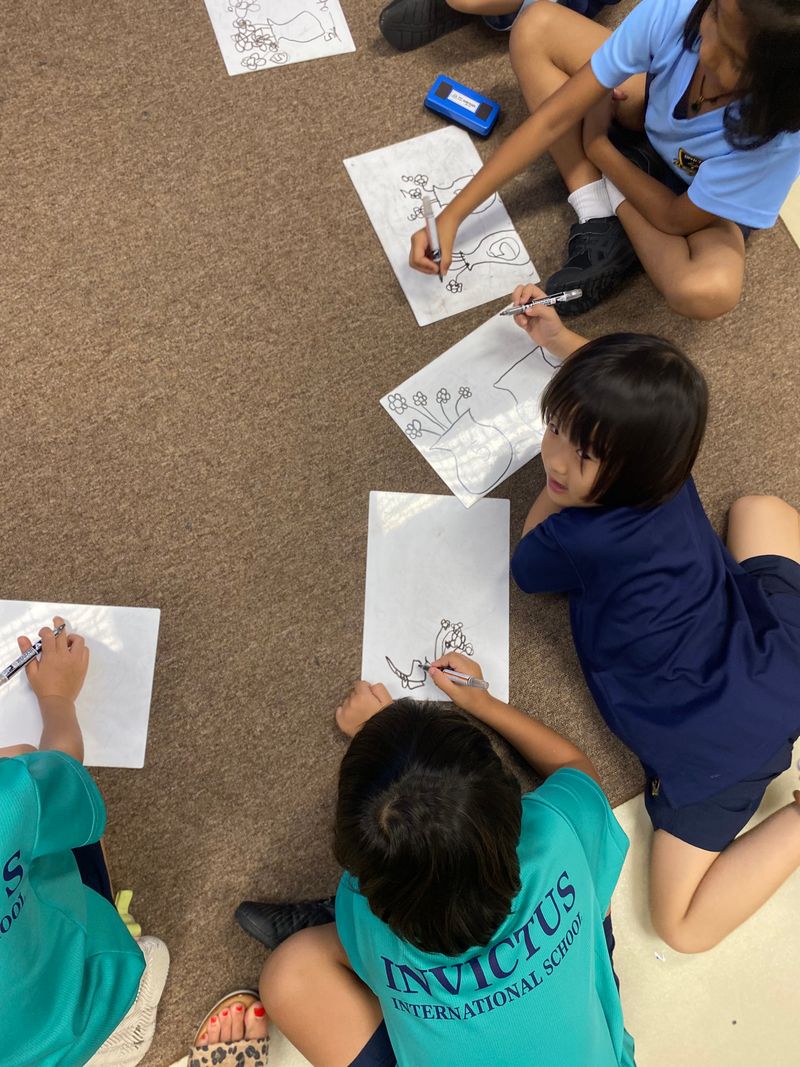
Global Perspective: Insights from Kinder World School
As a part of my research, I was able to engage in a conversation with Peter Baker, Principal Supervisor of 13 KinderWorld International Schools across Vietnam, I was able to dive deeper into how the Math Mastery approach works in large, diverse educational settings. These schools have adopted the Singapore Math model, a mastery-based framework built around explicit teaching and cumulative learning - many of the same principles I explored during my study tour.
Peter shared that their decision to adopt this approach was driven by a need for a consistent, evidence-based program that teachers could pick up quickly, deliver confidently and implement cost-effectively. “We started the explicit teaching model a couple of years back,” he explained. “We call it the KinderWorld Model. Retrieval practice to strengthen knowledge and problem-based application of learning is also included. I think it certainly makes a difference.”
What stood out to me in our discussion was just how closely their journey mirrors our own at TGS. We have already embedded strong practices in literacy through well-structured, whole-school programs that align with explicit teaching and the science of learning. However, mathematics remains an area where we see room for greater consistency and greater gains.
While our data confirms that we continue to perform above the state average in mathematics, recent NAPLAN results highlight a national decline in numeracy - a trend that we are aiming to avoid in our own School’s results. While we continue to do well, we have an opportunity and a responsibility to do even better for our boys. This is not just a local issue. In 2015, the Office of the Chief Scientist collaborated with ACARA to examine schools across Australia that had made significant improvements in numeracy over two years. Their report found that mastery-oriented environments were a consistent feature in high-performing schools (Smith et al., 2028).
When I asked Peter how the performance of his students compared to their peers in Australia, his response was compelling:
“We’ve had feedback from parents - many of whom are teachers - saying that when their children return to Australia, they are at least one to two years ahead in mathematics compared to their peers at home.”
This reinforces what global research has been saying for some time: structured, explicit, mastery-based teaching works. And more importantly, it works for all learners - not just the confident few.
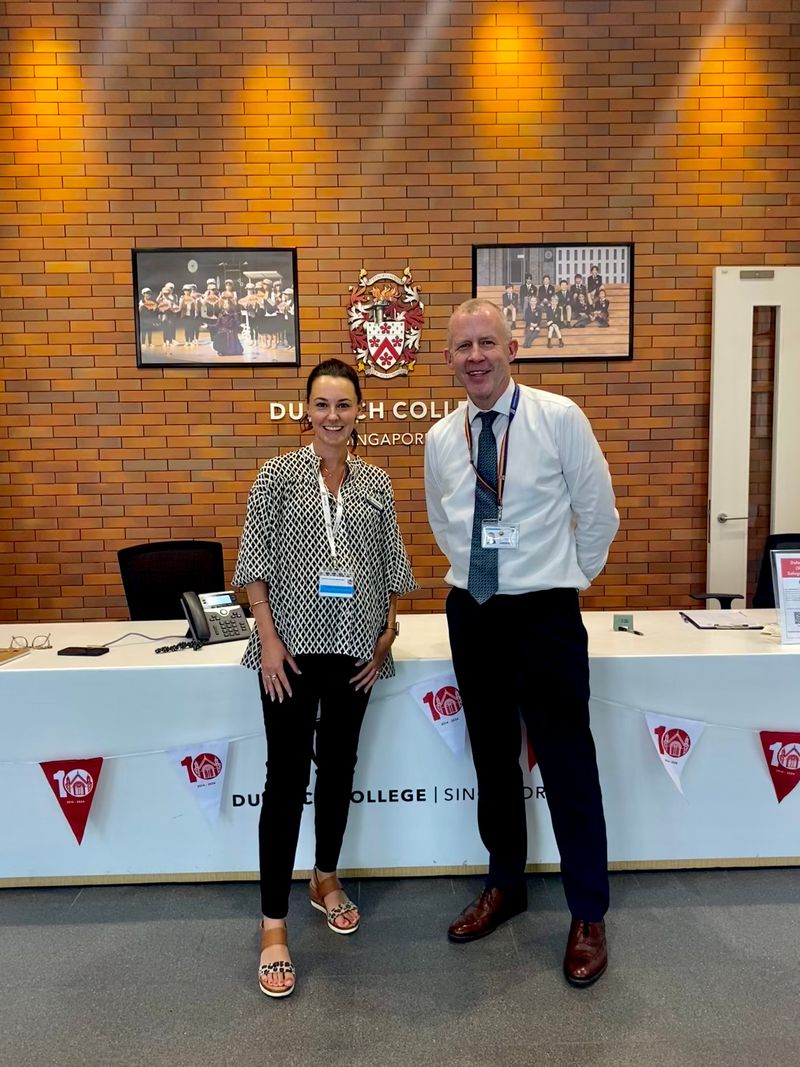
Bringing It Home: What’s Next for TGS?
I’m incredibly grateful for the opportunity this fellowship has provided - not only in shaping and deepening my own practice, but in contributing to a broader, shared vision for mathematics at TGS. This experience reinforced my belief that every student can succeed in mathematics when we give them the right tools, time and teaching. We are now laying the foundations for a clear and united approach to numeracy, one that will equip every boy with the confidence and skills to succeed - not just in the classroom, but throughout their schooling and beyond. And just as importantly, we’re building a community of confident teachers who are equipped to deliver lessons that are clear, consistent and deeply impactful.
I would like to sincerely thank Dr John Kinniburgh for granting me the opportunity to undertake this Fellowship. His support and encouragement throughout the process has been instrumental, and I am truly grateful for his guidance and mentorship. Dr Kinniburgh’s commitment to prioritising high-quality professional development for staff continues to shape a culture of growth and excellence in teaching and learning at TGS.
Latest Blog
The Benefits of Repeated Reading
An effective and evidence-based method that can significantly improve your child's reading abilities is repeated reading. Reading proficiency is a vital skill that sets the foundation for academic success and lifelong learning. Repeated reading, a simple yet powerful technique, has been proven to enhance reading fluency, comprehension, and overall confidence. Let's delve into why repeated reading is such a beneficial practice for your child. Research consistently supports the benefits of…
Print v Digital
I recently read an article by Petra Stock, entitled "Streaming Stories: Will Children’s Digital Book Platforms Upend Print", an interesting discussion comparing ebooks and print media and the ways they are being used during and post COVID. Which is better according to the article? Well, there is a clear winner; however, like many things, the answer can depend on the situation. I'd like to break elements of the article down, along with my own thoughts and compare the two. Social…
Striking a Balance
We understand that, as parents, we aspire to provide our children with the best education and opportunities for growth. Within the Junior School at Toowoomba Grammar School, we believe in fostering a love for learning while enabling your son to reach his full potential. In this article, we would like to emphasise the significance of automaticity and basic skill practice in extending your child's learning journey, while emphasising the importance of respecting their individual pace. Automaticity…
Developing Sportsmanship from Prep
Overwhelming pride in wearing the Blue and Gold is a familiar emotion for Toowoomba Grammar School students, as is abundantly evident in all our boys, from Prep to Year 12. This emotion and passion for the School is the essence of our TGS culture and defines what it means to be a TGS student. The launch of the 2022 - 2026 Strategic Plan creates an exciting opportunity for our co-curricular program, which links perfectly into the "character and wellbeing" pillar. The development of good…
Why Study Drama?
As an educator with over 30 years’ experience in the Arts, I specialise in the analytical, creative and practical spheres that quantify and qualify success in drama. I have been a Drama teacher and Arts Project Officer in the Independent, Catholic, state, and private sectors in primary and secondary, single sex and co-educational environments. This longevity of knowledge, gained through firsthand experience, affirms that students who study drama through until at least Year 10 acquire…
Drive and Determination
Jeremy Peacock is ranked third in the world in the PTS4 Para category and his sights are set on selection for the 2024 Paralympic Games in Paris. During Jeremy’s time at TGS he represented the School in numerous endeavours but was particularly known for his contributions to the Arts, particularly Music. On the sports field, Jeremy represented TGS in GPS Athletics, Cross Country, Cricket and Football. After returning from a gap year in the UK teaching music at Port Regis School, Dorset, Jeremy…
That Life-Changing Moment
His teacher, Mrs Rosemary Bishop saw his potential. She believed this young indigenous boy from Murgon had something special to offer the world and she fought to put him on the path to greatness. Mrs Bishop contacted the then Headmaster of Toowoomba Grammar School, Mr William Dent and asked if Waverley could be accepted into Toowoomba Grammar School on a scholarship. Mr Dent agreed and so changed the course of Waverley’s life. “I don’t like to think about where I would be now if that hadn’t…
Senioritis - The way we think affects the way we feel and behave
As high school students approach their final year, they may experience a phenomenon known as "Senioritis". As described by educators, Senioritis is a decrease in motivation and productivity, often accompanied by procrastination, complacency, and negative risk-taking behaviours. While not a medical term, Senioritis is a widely recognized term used to describe a common set of observed behaviours. As Jessica Lahey notes, "Senioritis is a real phenomenon. It can be defined as a decline in…
A Space for Learning
A core pillar of the Toowoomba Grammar School Strategic Plan is to provide an inspiring and broad curriculum for all boys, adopting technology and innovative pedagogy to transform learning outcomes. Over the last couple of years, the COVID-19 pandemic has prompted teachers to explore new frontiers of pedagogy, adapting to the difficult circumstances by launching interactive software, digitising trusty, tried and true resources, recording our lessons, flipping our classrooms, and cultivating an…